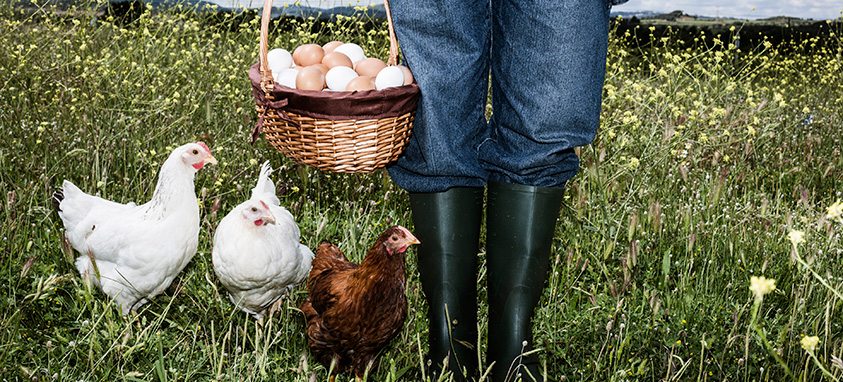Sustainable. Farm to table. Local. Buzzwords, or baloney?
There’s no doubt groups today increasingly want to know where their food comes from—how it was raised, and where it was raised. And the trend toward fostering wellness as well as productivity in meetings continues.
So, experts say it is increasingly incumbent upon planners to parse the language used by chefs and catering staff at hotels and other meeting venues. If the healthiest choices—for your attendees, local communities and the planet at large—are the goal, then it’s important to add food sourcing to your due diligence when making venue selections.
Here is a brief rundown of major sourcing issues.
Eggs
Are they cage-free? Wyndham Worldwide Corp. is the latest hotelier to embrace a global cage-free policy for all of its hotels and resorts. All the company’s 8,100 hotels will source 100 percent cage-free eggs by 2025. The move will impact locations in 66 different countries on six continents.
In a statement, Wyndham explained that in the current egg production system, most egg-laying hens are held in wire cages and given space about the size of an iPad on which to live their entire lives. These cages prevent hens from exercising many of their natural behaviors, including fully stretching their wings and dust bathing.
While cage-free does not necessarily mean cruelty-free, notes The Humane Society, cage-free hens generally have significantly better lives than those confined in cages. Cage-free also does not imply that the eggs are organic, a significantly higher bar to achieve, because chickens must be fed pesticide-free, organic feed; cannot be dosed with antibiotics; and must be given access to the outdoors.
All Wyndham brands will take part in the cage-free initiative, including Super 8, Days Inn, Howard Johnson, TRYP by Wyndham, Ramada Worldwide, Ramada Encore, Microtel Inn & Suites by Wyndham, Hawthorn Suites by Wyndham, Wingate by Wyndham, Travelodge, Knights Inn, Baymont Inn & Suites, Wyndham Garden, Wyndham Hotels and Resorts, Wyndham Grand, Dazzler Hotels, Esplendor Boutique Hotels, The Trademark Hotel Collection, and Dolce Hotels and Resorts.
Other global companies that have announced plans to convert exclusively to cage-free eggs include InterContinental Hotels Group and Carnival Cruise Line.
Meat
Is it Animal-Welfare Approved? For farm animals (including chickens), this is the gold standard. The Animal Welfare Approved program audits, certifies and supports independent family farmers raising their animals according to the highest animal-welfare standards, outdoors on pasture or range.
Being grass-fed is another hallmark of agricultural and environmental stewardship. Grass-fed beef and lamb usually have higher concentrations of antioxidants, some vitamins, a kind of fat called conjugated linoleic acid (CLA) and the long-chain omega-3 fats mostly found in fish. It also has less fat overall. Omega-3 levels in grass-fed beef generally are about 50 percent higher than in regular beef. But here’s the catch: Was the animal also “grass finished?” For beef, in particular, standard practice has long been to raise on pasture, then move animals to constricted feedlots, where they are fed grains to fatten them up for market; in the process, the meat loses the benefits of being grass fed.
Again, the very highest standard is organic and 100 percent grass fed, which means no antibiotics.
Is the seafood sustainably caught? More than 90 percent of the world’s fisheries are either fished-out or overfished. In North America, many hotel restaurants and other restaurants have embraced the guidelines for fish to avoid serving from Seafood Watch, issued by Monterey Bay Aquarium. This year, James Beard Foundation announced the national launch of Smart Catch, a program created by chefs to increase the sustainability of the seafood supply chain. More than 60 chefs representing more than 100 restaurants have committed to the program, including James Beard Award nominees and winners such as Mario Batali.
Fairmont Hotels and Resorts, Hilton Hotels & Resorts and Hyatt Hotels Corp. are among the major hotel groups that say they procure sustainable seafood for their restaurants and catering. In Asia, Hilton, Hyatt and Starwood Hotels & Resorts (now part of Marriott International) have removed shark fin from their menus, despite the continuing popularity of shark fin soup in China, Singapore and elsewhere in the region.
Still, there’s another crucial factor in deciding which seafood can be responsibly served—how it was caught. Destructive harvesting methods such as bottom trawling destroy the ocean environment and needlessly harm bycatch—the unintentional capture of other marine species such as dolphins and sea turtles in fishing nets. Line-caught fish are a more responsible choice, except if caught by longline fishing, a commercial fishing technique that uses as many 4,000 baited hooks on one main line. It’s a complicated issue, but in general buying fish from local, small-scale, sustainable fishermen is best.
Call it boat-to-fork dining.




